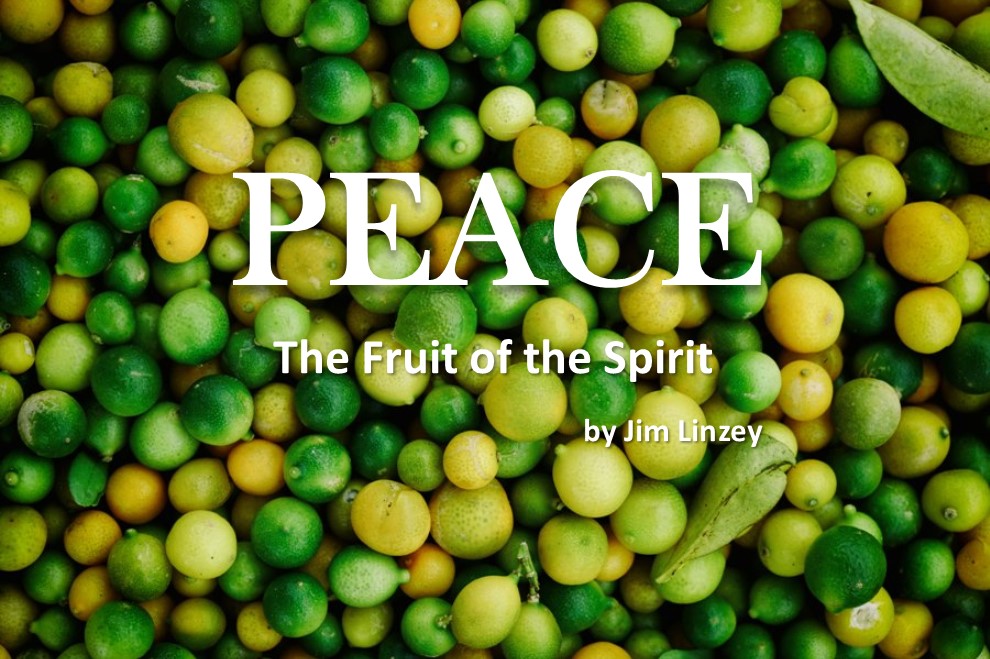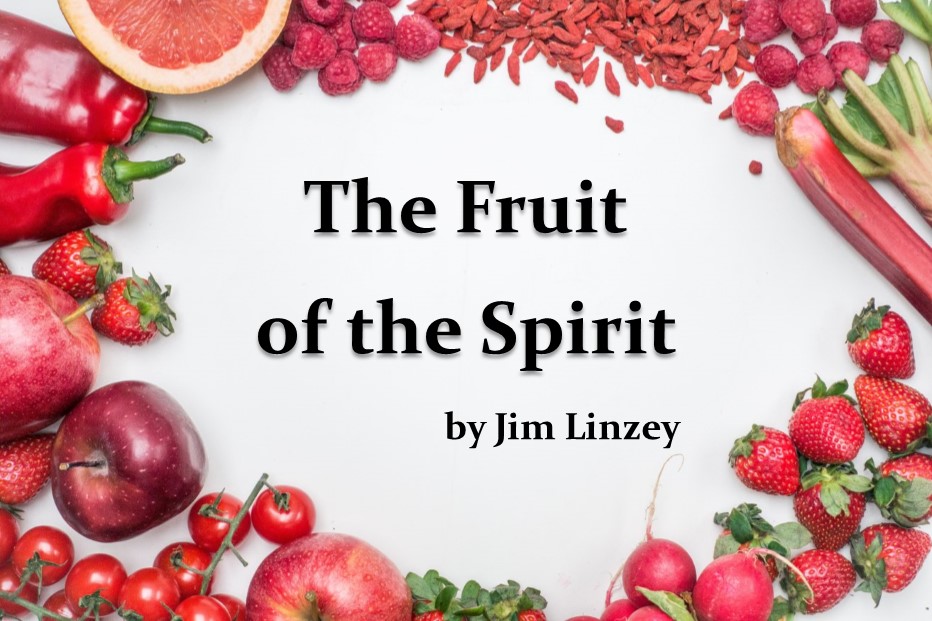The Fruit of the Spirit: Peace

“For He is our peace, who has made both groups one and has broken down the barrier of the dividing wall” (Eph. 2:14).

Part of the Fruit of the Spirit series by Jim Linzey
The word peace as used in the gospels and in Ephesians means to bind together those things that were separated. Jesus made peace through the blood of His cross (Col. 1:20), thus binding together the believing sinner and the holy God. The Holy Spirit produces the fruit of peace in the life of that believer. This fruit is manifested in proportion to the believer’s yieldedness to the Spirit.
Isaiah told God, “You will keep him in perfect peace, whose mind is stayed on You, because he trusts in You” (Isa. 26:3, MEV). The battleground is the mind—“To be carnally minded is death, but to be spiritually minded is life and peace” (Rom. 8:6, MEV). The apostle Paul speaks to all of us when he tells the Colossians to “Let the peace of God, to which also you are called in one body, rule in your hearts. And be thankful” (Col. 3:15, MEV). And we are to remember that that peace comes from the Holy Spirit. Peace comes as we take everything to God in prayer with thanksgiving: “And the peace of God, which surpasses all understanding, will protect your hearts and minds through Christ Jesus” (Phil. 4:7, MEV). The life of the believer shows proper growth and development when the power of the Holy Spirit enriches that growth in character.
All the virtues of the fruit of the Spirit are to be shared with others.
The fruit of the Spirit is a manifestation of Christ’s nature in the life of the Christian by the Holy Spirit. The peace of natural man is very different from the scriptural definition of divine peace. In human concept, peace implies mental tranquility, absence of tension, or a settlement of disputes. Peace, the fruit of the Spirit, is the secure and confident repose of the soul in God himself. Believers have composure of spirit in all circumstances because they are divinely insulated by the Holy Spirit, not from trials, but from the anxiety of life.
Peace is manifested in proportion to the believer’s yieldedness to the Spirit.
Category: Spirit, Winter 2018


